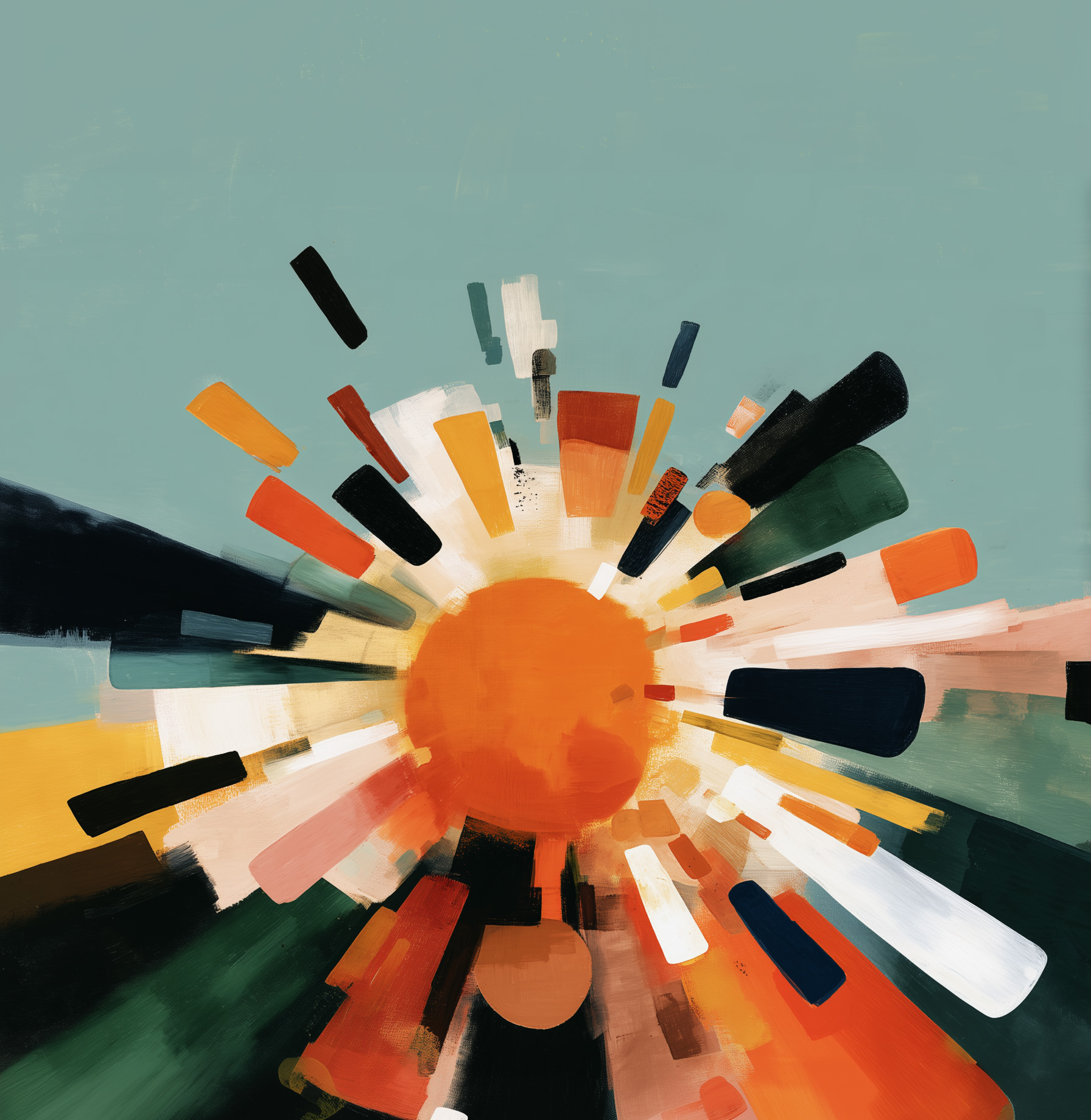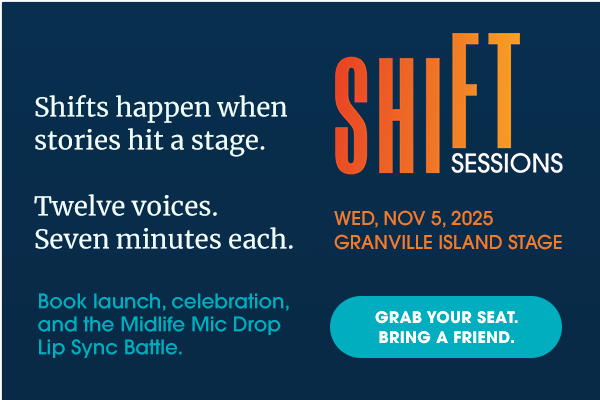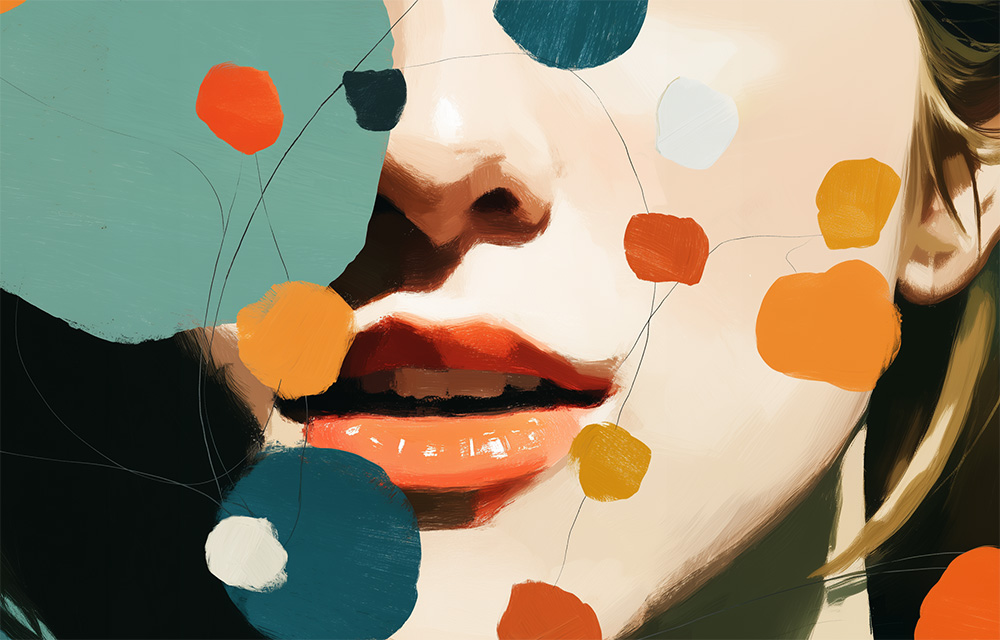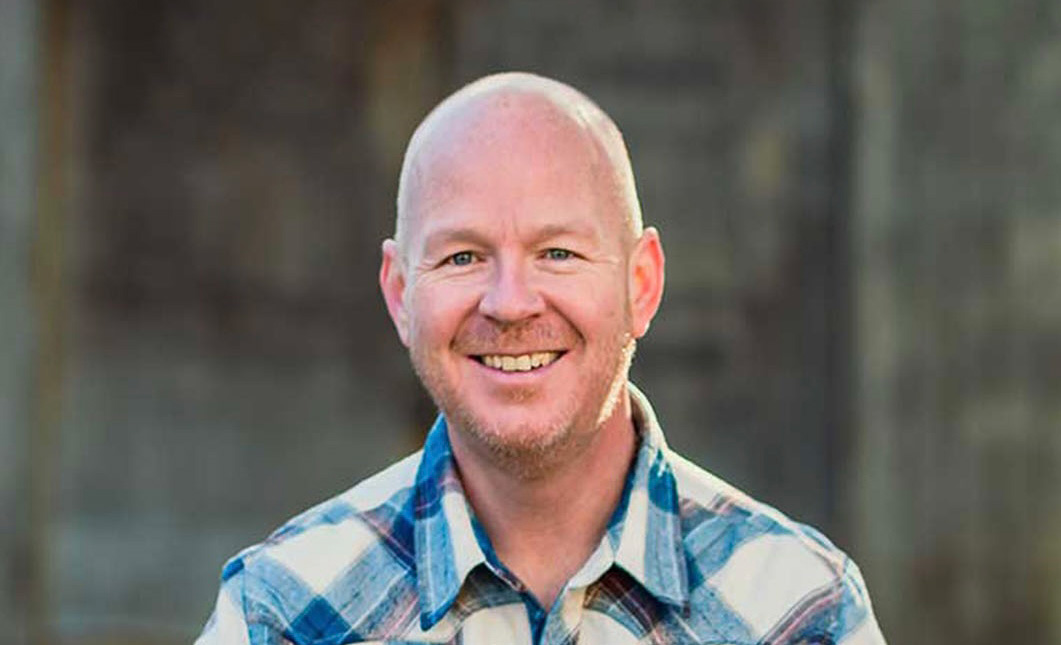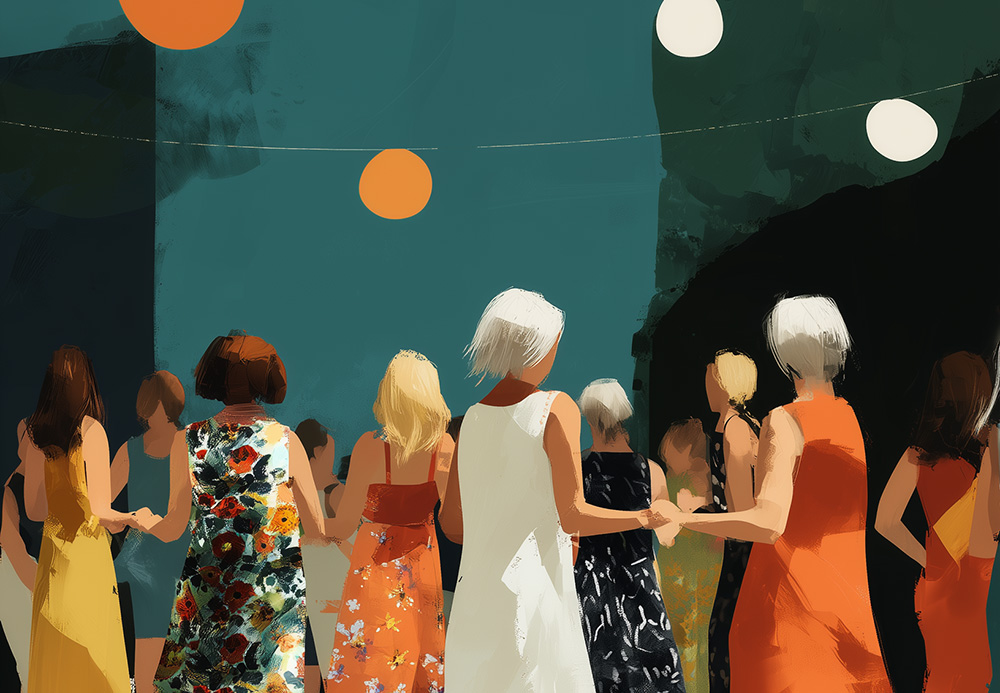My friend Joy died one year ago at age 42.
Until then, I had never pulled my car over to wail. I had never spoken at a funeral. I had never slept in a dead friend’s brand-new bed in her brand-new tiny home cabin, back-to-back with her sister. I had never written a poem titled, The World Is Terrible.
I had also never laughed as hard as I have in the 12 months since Joy died. If measured in diaphragm contractions and laugh-water pouring from my eyes, I may have laughed more this year than in the last decade combined.
The curse/blessing of Kahlil Gibran
I shouldn’t be surprised. In university, I read On Love by Kahlil Gibran and considered myself forever haunted by its exquisite curse:
But if in your fear you would seek only
love’s peace and love’s pleasure,
Then it is better for you that you cover
your nakedness and pass out of love’s
threshing-floor,
Into the seasonless world where you
shall laugh, but not all of your laughter,
and weep, but not all of your tears.
I knew, even then, that I had made a secret pact with myself to politely laugh through life. My default face was a polite, open expression with the corners of my mouth permanently and softly upturned. In adolescence, I had given myself over to desperate laughter a handful of times, but I suspected those days were over. I would no longer have the time (or humility) to laugh “all of my laughter.”
.jpg)
On the other hand, I cried (and cry) often. Every few months, I’m in for a full-body, private purge. It’s like someone pushes the Weeping elevator button, and once I get on and inhale, the elevator descends silently until I’m at the bottom of my breath, passing floors and floors of sorrow from living in the world for the hundred days or so since my last descent, and then the still-silent tears and heaving emerge. I thought I had wept with all of Gibran’s tears until that day in August, when I pulled over on Stanley Avenue in front of Pigeonhole Home Store to receive the news of Joy’s death. Those tears required tone.
In the months following Joy’s death, I noticed I started laughing more, laughing harder, and laughing longer.
In the months following Joy’s death, I noticed I started laughing more, laughing harder, and laughing longer. Maybe it was my way of trying to stay connected to her, to Joy. Or maybe Gibran’s curse was also an inverse blessing: When you cry with more and more of your tears, then you will be able to laugh with more and more of your laughter.
Joy had an unignorable laugh. Part of our 25-year-long friendship was her trying to make me laugh, despite all my attempts to keep us moving onto the next thing, to get back to "meaningful" conversation, to return my face to its contractual state of Pleasant, Calm, and Photogenic. With Joy-the-blond-bombshell gone, I considered that I might at least allow her lifelong goading to succeed in cracking my laughter wide open, right here on this now bomb-shelled earth.
I decided to study my laughter or, more specifically, my apparent resistance to it.
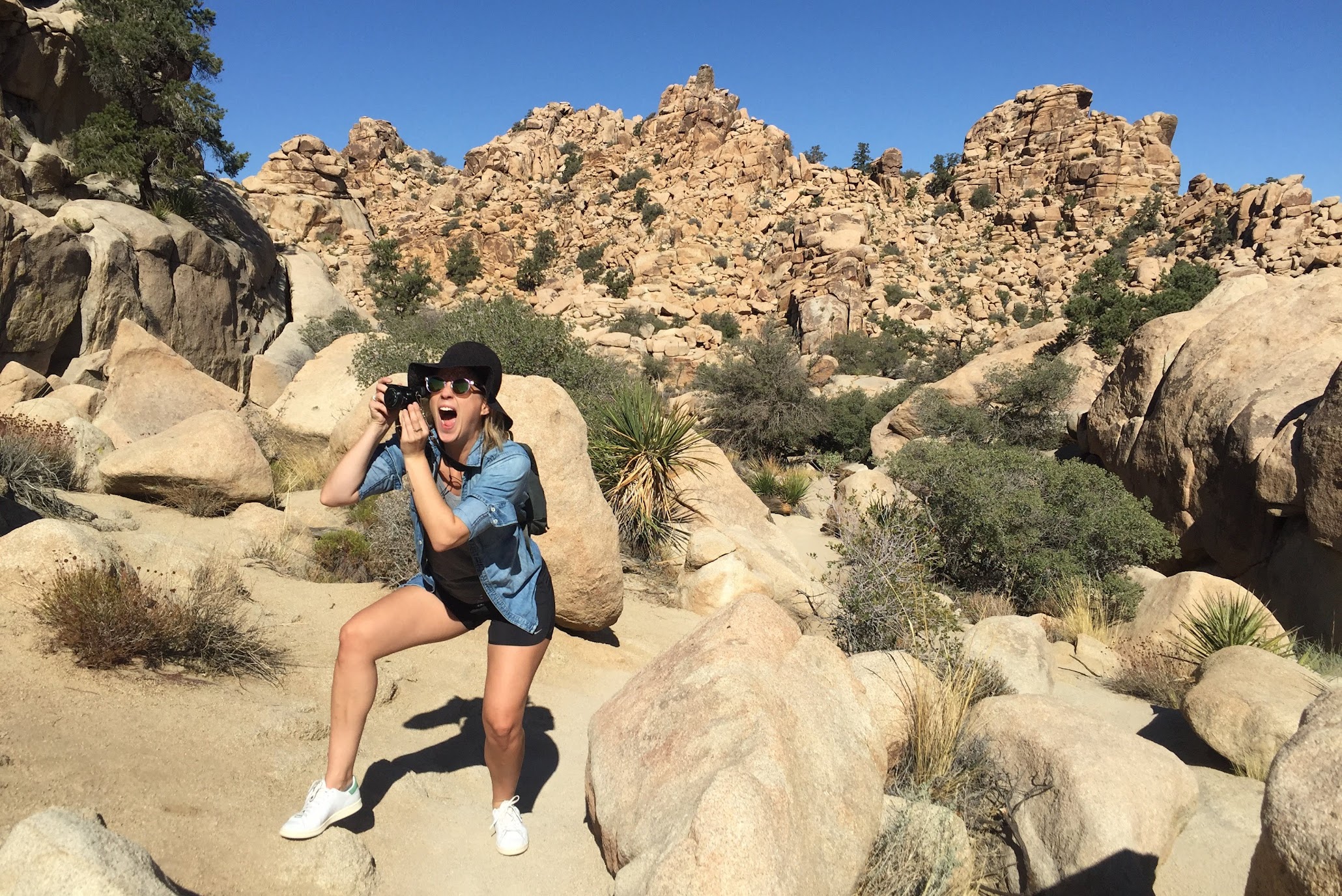
Lessons in laughter
To my surprise, there were at least a couple of opportunities to laugh every single day. But as I suspected, it was my firm custom to keep them curtailed with a closed-mouth giggle or by smiling widely and raising my eyebrows as if to say, “I acknowledge you are laughing right now and this is a moment where laughter is warranted” before moving us past the interruption. For the first time, I admitted to myself why I had been unyielding to Gibran-worthy laughter: I feel ugly when I laugh. I have big cheeks, thick eyelids, and a substantial nose. When I laugh, my nose grows Hagrid-bulbous and my eyes get swallowed up by the face skin clamouring around them, like hangry koi fish. Better to mute myself than to risk that particular departure from an otherwise agreeable face.
I feel ugly when I laugh.
Had I really been missing out on the joy of daily Gibran-laughter because of how I thought my face looked?! In a conscientious attempt to emancipate my capacity to laugh, I decided to hide my self-view in Zoom and resist my reflex to restrain myself.
I’ve felt at least as close to the friends I’ve Gibran-laughed with as if I’d wept with them
Here is some of what I learned:
- Laughter requires letting go of inhibition. If I prematurely put a “dead end” sign out in front of the beginning of a laugh, it will die indeed. But if I think of arising laughter as an onramp to a highway I didn’t know I was headed for, and if I choose to merge onto that highway instead of pulling over to compose myself, I end up in places I never imagined: I’ve felt at least as close to the friends I’ve Gibran-laughed with as if I’d wept with them; I’ve had creative and logistical epiphanies; I’ve made more money; I’ve had better sex. I don’t know if it’s all related, but I also don’t know if it’s all not related.
- Laughter has a low bar for entry. My husband is hilarious, and our son is becoming so. When my son experiments with a joke that doesn’t quite land, my husband immediately affirms him: “You gotta swing for the fences” or “The only shot you miss is the one you don’t take.” Similarly, being a laugh-er is like being an outfielder in a field full of batters—all I have to do is stick out my skinny arm with its big mitt and be ready for impact.
- Laughter grows in recollection. I started adding a laughter detector in my nightly examen and was surprised by how many times I would have otherwise forgotten the laughter that buoyed my day. Robust spiritual formation suddenly now seems impossible to me without a laughter line item, like these real ones from my journal: rereading this ode to aging; going swing dancing for the first time; discovering and frequenting Heckler’s comedy club; laughing with a friend like teenagers in church, completely silently, bodies quivering on the hard pew; being roasted by my son at a White Spot, both of us trying to compose our snorting and spurting over in our little booth.
.jpeg)
being a laugh-er is like being an outfielder in a field full of batters—all I have to do is stick out my skinny arm with its big mitt and be ready for impact.
A friend of mine went to a women’s circle one New Year’s Eve and was invited to fill in this sentence: I’m a ___________ (writer, painter, lover, etc.) who doesn’t _____________ (write, paint, love, etc.). She said, “I’m a dancer who doesn’t dance.” Within 12 months, she was dancing. Up until age 43, if I were in that circle, I might have said: “I’m a laugher who doesn’t laugh.” But now, a year after my beloved Joy died, I do.



